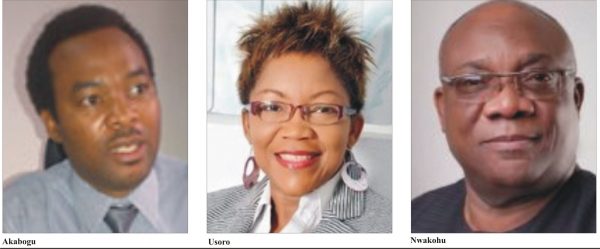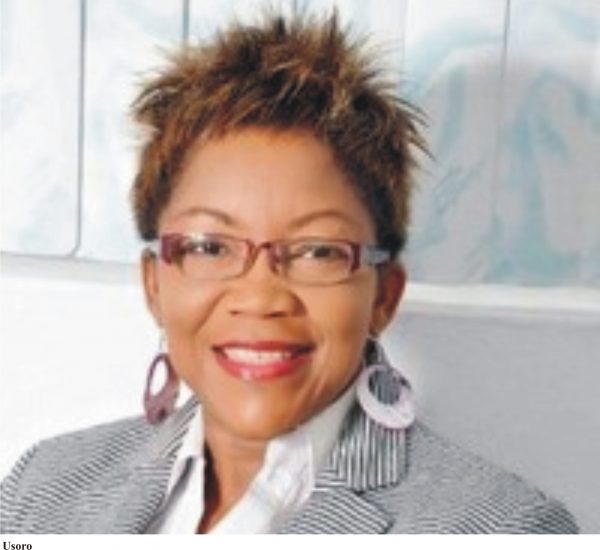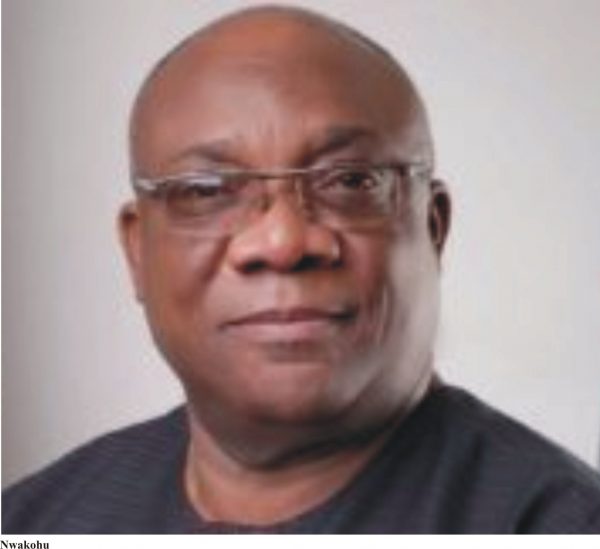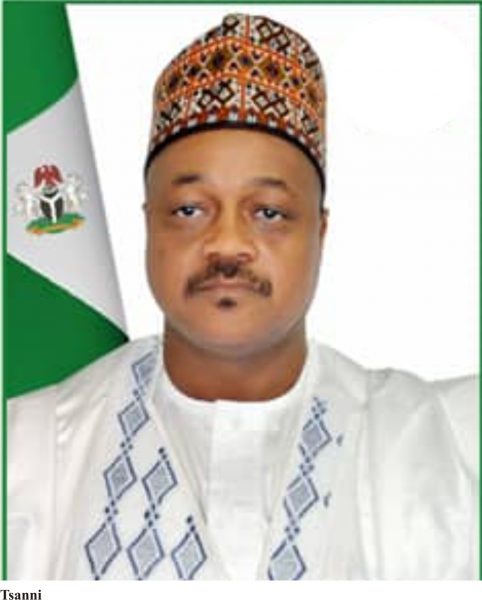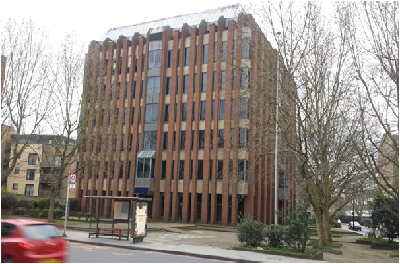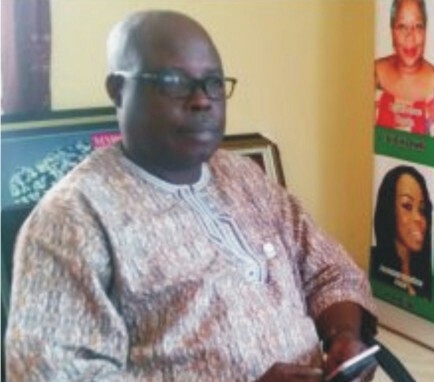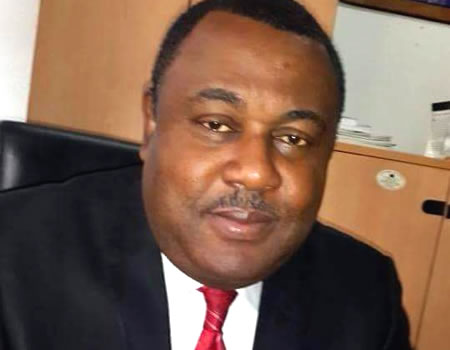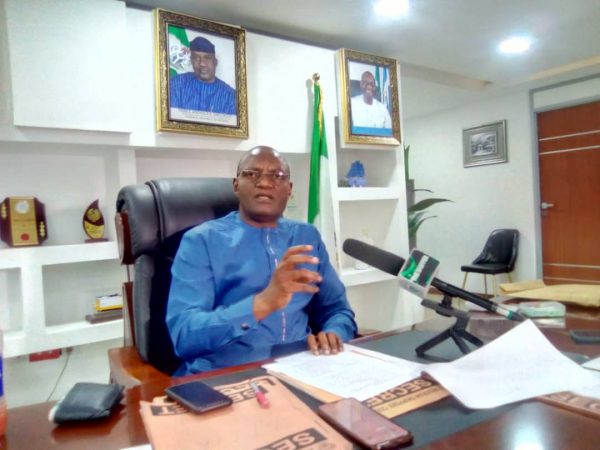When Nations Fail: The Leadership That Matters
By Kingsley Anaroke, Kenneth Jukpor & Okuneye Moyosola
Different laws not only guaranteed advantageous economic positions to the nobility and the clergy, but equally gave them political power. In fact, life in France then was harsh, brash, short and unhealthy. Is Nigeria of today, different from this? Against this background, the French Revolution brought a radical change. On August 4, 1789, the National Constituent Assembly proposed a new constitution which ushered in equality before the law for all.
Leadership That Matters
Today, the kind of revolution that suits the needs of Nigerians is that of “The Leadership That Matters”. In this, priority should be given to sectoral reforms with performance and assessment-based leadership from the bottom to the top. A government with the preoccupation of sector reforms for easy performance tracking. It is a governance system where relevant industry bills should not only be passed into law but must be enforced for results. It is a professionalism-driven leadership model. This is what the Kings Leadership Lecture and Awards seeks to achieve with its Transport Leadership Lecture series, whose second edition was successively organized recently in Lagos. It attracted men and women of substance in the sector. They bared their minds and emotions about the topsy-turvy affairs in the industry with a hard knock against bad leadership. Continue your reading from last week, where a pull out was featured in your delightful paper, MMS Plus. Enjoy it.
“It’s Not Bad To Fail, But…”
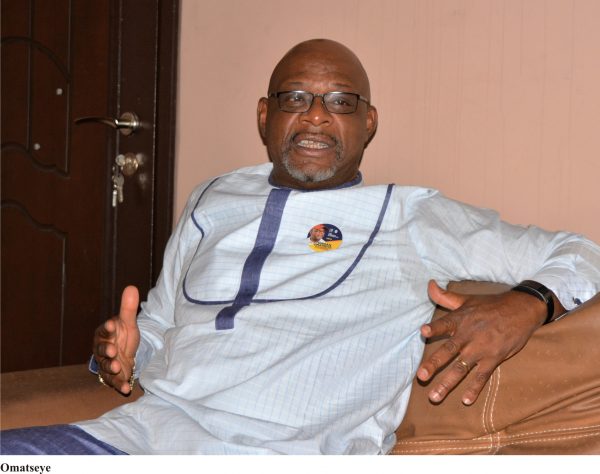
Barr. Temisan Omatseye is a former President of African Shipowners Association (ASA). He was the Chairman of the 2019 MMS Transport Leadership Lecture.
When we look at how the Nigerian maritime and shipping industry has gone in the last ten years, most of us should be angry with ourselves. We have to come together and speak with one voice. There is one challenge I have with our beloved country ‘Nigeria’. It is that we are so focused on our personal interest rather than a national interest. Now, in the maritime sector, it is time for us to focus on the national interest as it relates to the industry than to think about what we would gain personally.
I keep making the statement that where we are going is closer than where we are coming from. This means that for those of us who are upto 50years, even if we stay another 50years it would be too long, but we must make the best to ensure that our children coming behind will appreciate the legacy we leave. So, whatsoever it takes I appeal to every single one of us here in this room today, that whatever you can take no matter how small it is, let us take it for the betterment of our industry. It is not the time for us to start thinking of what our personal gain is. I appeal to everybody to recognize that we came out today to make a difference.
To fail is not a bad thing, you can only learn from your failures and we are learning from our failures. That is why I am going to probably say, whether I like it or not, I take the blame for my mistakes. I have been part of the failure and I apologize for that failure. But the bottom line quite simply is, I will say it the way it is, Cabotage has failed, let us start from today to make Cabotage work. That is what I will say, it is only when you start accepting responsibility for your failures, then, you can begin to move to make things a lot better but if you live in denial, you will die in denial. So, I want to thank you all for this and Kings Communications Limited, publishers of MMS Plus newspaper for the honour granted me to chair this occasion and I wish you all a fruitful deliberation.
I’m sure that you’re aware that all aircrafts and spare parts that come to operate in Nigeria pay zero Customs duty, whereas ships and the spare parts of vessels pay duties. The reason the aviation industry got this success is because they were able to speak up with one voice and got what they wanted.
Unfortunately, the shipping industry has been unable to do the same thing. This has been the major challenge the Nigerian shipping industry is facing. I’m sure that today has been a major eye-opener for many of us.
People like Princess Vicky Haastrup and Margaret Orakwusi have spoken and you can see clearly that they are operators that feel the pinch of the industry. They aren’t telling us stories that somebody told them, rather they are telling stories that they personally experienced. In my opinion, I think anyone who has lost money by virtue of Cabotage should be compensated using the Cabotage Vessel Financing Fund (CVFF). The reason simply is that they bought the vessels because of Cabotage and the opportunities. The failure of the government and the regulators to enforce Cabotage was what made their businesses to fail. So, you can’t blame them for failing or blame them because the people they thought they would be taking businesses from are still operating on the Nigerian waters. This is the way we should look at this. The people doing this business don’t have two heads, but they can’t borrow monies from their country at 3% interest and we borrow money at 13% interest rate. You can’t expect us to compete against these kinds of people. So, that is what is actually going on.
NPA Needs Unbundling For Administrative Competition
At Nigerian Ports -Akabogu
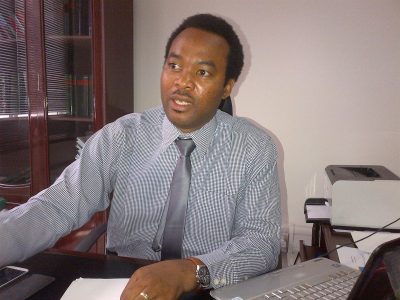
Mr. Emeka Akabogu is a Senior Partner, Akabogu & Associates and Convener of the annual Oil Trading and Logistics (OTL) Africa Downstream Conference and Exhibition.
You stated that there is need for the unbundling of Nigerian Ports Authority (NPA) to guarantee competition. Can you shed more light on this?
Nigeria has its ports which are known and with quite a number of terminals. All of them are managed by NPA. What has happened is that the port services have not been optimized under this regime. My submission is that the port services would be optimized if there is increased competition by different ports such that shippers have a clear choice based on identifiable empirical standards as to which port they should go at any point in time. This can be achieved if we had a regime where we had port authorities which are in charge of specific ports.
We have a situation where the moribund or the stillborn Ports and Harbours bill made provisions for ports in the Eastern part of the country and ports in the West. This is not to achieve independence of the port administrations according to regional lines; it is simply to ensure that there is an administrative system which sees competition on the individual ports as being primary as opposed to a wholesome administration where there is nothing to encourage individual operators to compete.
Under the constitution of Nigeria, ports and port constitution remain under the exclusive list of the constitution. So, it is still going to be owned by the Federal Government but the mandates will be specific to individual ports and these mandates will ensure that relevant indices for optimization of standards are all followed.
You have talked about competition but wasn’t the port concession and the advent of private terminal operators targeted to guarantee this competition?
Certainly, the port concession makes room for competition, but I’m talking from the administrative point of view. NPA remains the landlord and the Port Authority as landlord has several checklist items with which it uses to rate the operations of individual ports. The Port Authority is minded and encouraged towards optimizing efficiency. If it is not minded towards that, the chances that we would be having monopoly systems which can compromise the efficiency we are talking about is there. Even though we have got concession services currently running, we have quasi-monopoly operations which are going on. So, we don’t have the full benefit of the full competition which you get where you don’t have the monopolies that we are talking about. This is one of the reasons why I am sad that the National Transport Commission (NTC) Bill was never passed because that would have been able to deal with the issue of having dominant players in the market.
Currently, we have dominant players who are able to unilaterally or together as a cartel ensure that things happen just along the lines that they want. With the competitive environment which I’m talking about, we would have been able to avoid that.
The review of the port concession agreement is ongoing at the moment and it hasn’t been opened to crucial stakeholders, do you think some aspects of that agreement could be reviewed to guarantee this competition you’re talking about?
The agreement is the individual agreement is with private sector operators. So, it’s not for the general public. However, to the extent that you have the government interest represented in this agreement, I think it will be incumbent on the government interest to ventilate the broad areas of engagements with the private sector operators so that the public knows. The public needs not know the precise details of each provision, but the public should be familiar with the broad area which needs to be covered and that’s the responsibility the Bureau of Public Enterprises (BPE) and the NPA.
We have had issues in the past we revealed the vacuum of the place of a port economic regulator later filled by the Nigerian Shippers’ Council (NSC), although NSC’s position is still questioned in court. Would this affect the outcome the agreement being reviewed?
I want to believe that it is among the issues which are being taken into consideration. However, the role that the NSC is playing as an economic regulator does not in any way constrain the operations of the ports as it currently exists. The fact that you have litigation in court or the fact that you have any regulatory roles been played does not affect your responsibilities as far as ensuring that cargoes is discharged on time, nor does it affect your responsibilities as far as ensuring that key side is clear or any other of the responsibilities that you are supposed to play either as a terminal operator or as a port authority.
They are two distinct and parallel streams of activity which really do not impact on one another beyond ensuring from the economic regulatory point of view that services which are contracted for are undertaken. Don’t forget that the terminal operators are operating with ports in trust for the Nigerian people. So, they don’t own the ports, they only operate the port in trust because the ports are the gateways to the seaways. To the extent that you are operating the ports for Nigerians, there must be a convergence of interest on the part of Nigerian shippers and on the part of the operators of the port.
Why Punish Truck Owners For Importers’, Agents’ Wrongdoing -Ogungbemi
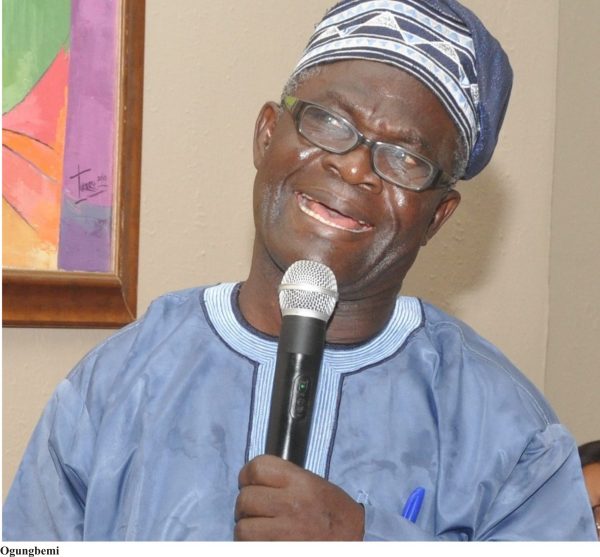
Chief Remi Ogungbemi is the Chairman, Association of Maritime Truck Owners (AMATO)
Recently, Nigerian Shippers Council (NSC) met with truckers to introduce standardized haulage cost of moving containers from the port to different parts of the country. As an operator, do you think that will be feasible?
I want to really appreciate what the Shippers’ Council has been doing. They have been working to ensure that the cost of doing business in our port is reduced. It’s unfortunate that the hostility of the environment doesn’t allow that because there are so many devourers out there. These people are ready to devour the proceeds not only from truck owners but from other stakeholders in the industry. However, truck owners are the most affected. I believe with concerted effort Shippers Council will achieve that.
With the state of the road and other factors that are not controlled by truck owners, such as fuel, extortion and other issues, do you think it is possible to set an amount as the rate to move cargo from Lagos to Port Harcourt?
I will say for now that the truckers are under siege; siege in the sense that there are so many things that are militating against the stability of the sector.
Presently, we have a task team that has been tasked with the responsibility to see how the port access roads can be free.
Yes, they came to evacuate some trucks from the road but the necessary measures have to be put in place. Where would the trucks go? If they leave, what measures are put in place to regulate the movement of these trucks? I must say that it is not in the interest of these truck owners or drivers to park on the roads and bridges.
I am using this forum to appeal to the authority to start planning on how to use the modern technology to address the issue of traffic gridlock in the port environment. The environment can no longer accommodate the volume of the activities that we are giving to it. We should move away from the analogue system of doing business to the digital. Transport sector has to make use of digital technology especially for the port operations and the movement of trucks should be planned online.
Coming back to your question, you need to look at the road and look at the conditions of the vehicle. Most of our roads; usually Apapa, Oshodi and Mile 2 axis, have all collapsed. The roads leading to the port ought to be the best in the country because government earns huge revenue from the ports. The government has abandoned the ports and it’s like abandoning the golden hen that lays the golden egg. The bad roads must be quickly addressed. Rickety roads would lead to rickety trucks. Tankers and trucks are falling on the roads on daily basis as a result of the bad roads.
Regulating the rates is a good idea but do we need such control in Nigeria? I will say no. We are running a free market economy. If you look at the road charges, there is so much money spent on the road as taxes to several local and state governments as well as overzealous security officers.
Presently, the amount that truckers are spending before their trucks can enter the port has reduced. This doesn’t mean that money is not exchanged at the ports; it still happens day and night because the people in-charge see it as an opportunity to enrich themselves. Government should come up with a measure that will remove human contact. We should go digital to address these issues that are militating against the stability and survival of trucking and transport system.
Speaking on extortion, please tell us about the current state of things at the port now. We know NPA has introduced a truck call up system using Tin Can Island and Lilypond truck parks. How has that affected your business?
Presently, I can confirm that the rate of extortion has reduced but the extortion is still there. One of the best things that have ever happened to the transport sector is releasing Lilypond to serve as Transit Park. I see it as a good way to address the problems. However, the people that are benefitting from the system never allow the Lilypond to serve the way it’s supposed to serve because they want to enrich themselves. The call-up system is good but what is going on now is manual call up. Anything that is manual and has human intervention would give room for extortion and bribery. So, I am advocating for the use of electronic call-up that will be void of any human contact.
The task force that was set up is just there to inflict various degrees of injuries on truckers and go away. Task force cannot and will not be a solution. We should look for how to expand the environment so that it can accommodate all the activities that we are giving to it. I know the expansion cannot come overnight but let’s see how we can use modern technology to address most of these problems.
We don’t have to wait for some to come and call us and get frustrated at the process to the extent that you have to pay money. If it is electronic, you will know it is your turn. This is similar to what is happening in the banking system, everything is now on automation.
Truckers are also under siege because the shortcomings of other stakeholders are being laid on the truck owners. It is strange that after the goods have been examined in the port, Customs would arrest that vehicle when the goods have been loaded on the truck. After the arrest, they will keep that vehicle for several months and in some occasions, they would not only seize the truck but proceed to auction it. Meanwhile, truckers aren’t the importers of these goods. Truckers aren’t the agents or the Customs officers that released the goods.
We are using this forum to appeal to the authority to hold the importers responsible for what they are bringing into the country. The truckers do not have the privilege to scrutinize the documents they are using to import, recover or release the goods from the ports.
‘AfCFTA: Why Nigerians Are Worried’
Barr. Mfon Usoro is the Secretary General, Abuja MOU. She was the Guest Speaker at the 2019 MMS Transport Leadership Lecture.
Nigeria is afraid because other countries are more competitive. That is the problem, it is not about dumping because there are safeguards and other ways to stop other countries from dumping goods in your country. The developed countries in America and Europe use some of these mechanisms to ensure that they don’t buy goods from Nigeria even though we are members of the World Trade Organization (WTO). Some of these measures include, stating that the goods haven’t met their standards. So, it is competitive pricing, if you want a country to buy goods from Nigeria instead of going to buy from Togo, you have to make your price competitive. If your port charges are higher than the Togolese port charges, why would people prefer to buy from you? It is the fear and lack of competitiveness that makes Nigerian producers wary of what can happen under the AfCFTA. The point is that, why aren’t we competitive?
If I’m trying to do business in Nigeria and you’re charging me company tax of over 20% and in another country, for instance South Africa, it is cheaper, which means the goods to be produced and traded in the African Free Trade Area would be cheaper, why would they come to Nigeria?
If you say the taxes in Nigeria are higher than what you have in South Africa, why you say so is because of our company tax which is over 20%. However, our Value Added Tax is 5% only whereas the other country’s VAT is 17% or 18%. If you aggregate, you would find that we are at a par; but with this drive for revenue in Nigeria, aren’t they going to increase VAT? They are talking about increasing VAT so that advantage we had in arguing for incentives in maritime trade is also gone because the taxes are too much and they make the industry not competitive when compared to other countries who can produce goods of top quality cheaper because their business environment is friendly. You must buy from other countries because you are signatory to the AfCFTA. Is it their fault that you refused to address these issues in your country?
CRFFN Will Ensure High Degree Of
Professionalism Soonest -Nwakohu
Barr. Samuel Nwakohu is the Registrar of the Council for the Regulation of Freight Forwarding in Nigeria (CRFFN)
They have been lots of activities at the CRFFN this year, including numerous partnerships with tertiary institutions. Can you share some of the high-points with us?
One of the mandates of the Council is education and training to enhance the knowledge base of freight forwarders in the industry for efficient service delivery. That is why we are empowered by the International Federation of Freight Forwarders Associations (FIATA) to accredit higher institutions where such programmes would be conducted. We have done that in the six geo-political zones. We have so many institutions now that have been accredited for the purpose of the training for freight forwarders in FIATA professional diploma and supply chain management.
The Registrar, Barr. Nwakohu has passion for that and he has said he would leave no stone unturned until majority of the freight forwarders acquire the needed knowledge to compete favourably with their counterparts in other nations. That is why we signed the Memorandum of Understanding with the University of Nigeria, Nnsuka and others. The University of Lagos, as well as other MoUs that have been done before now.
Capacity building is the Registrar’s core focus for now because the freight forwarders are critical in the industry and to the development of the sector. So, there is need for them to get the required knowledge in order to play their unique role and enhance the economy of the country. With the training, they will be able to deliver speedily in their various areas, that is why the Registrar has decided to kick- start the training of freight forwarders. The staff will also gain from it as well. As I am talking to you now, the training of the trainers programme is ongoing.
We have not had this much activity, focus and goal-oriented CRFFN as we have now, can this be linked to the availability of the governing council? What assurance can you give to industry operators especially freight forwarders?
I am very confident that the present council would deliver. We have pragmatic and visionary people there. The chairman of the council, Mr. Abubakar Tsanni is a wonderful man and a dynamic leader. He has the knowledge and the willingness to carry out the vision of the Council. It has not been long that the board assumed office but the rebranding process is ongoing. The logo has been changed for better. In no time, many other programmes will be unveiled.
They are working tirelessly to see that they deliver on the mandate of the Council. With the high level of freight forwarders also on the governing board, there is no doubt that this team will deliver. I want to assure the public, especially freight forwarders that the era of touting in the practice will soon be over as there will be sanity and high level of professionalism in the industry.
Cargo Isn’t Nigeria’s Problem’
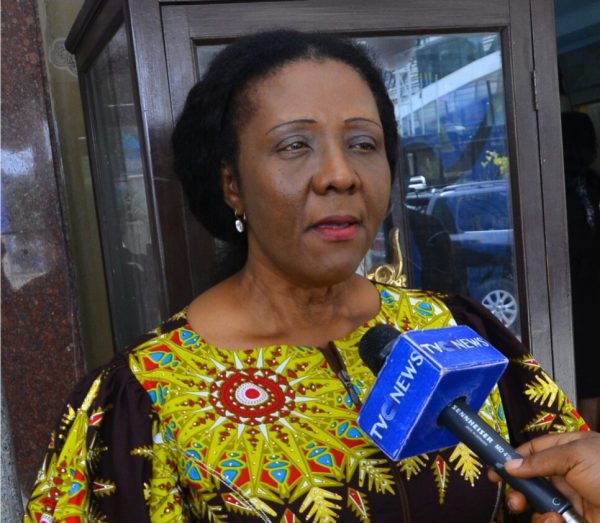
Barr. (Mrs.) Margaret Orakwusi is the chairperson, Nigerian Ship-owners Forum. She was a Special Guest at the 2019 MMS Transport Leadership Lecture.
Cargo isn’t Nigeria’s problem because we generate a lot. Our crude oil is there and some of us have been fighting so that we could change the trade terms. In order climes, if you generate cargoes you dictate the freight, services like insurance, maritime lawyers and other dictates of the contract. We just let them take our crude without any value. We have made noise and tried to fight even beyond our industry because this also involves the Ministry of Finance. Why is it so difficult for them to understand that we are losing a lot in billions of dollars yearly?
When it comes to war risk insurance, I plead with my friends in the media to be careful about publishing everything because it affects the premium. Whether we like it or not, we all go to the market to buy things that come through maritime transportation. So, this is the time for all of us to work together and leave bad news alone. Some of us have suffered immensely when it comes to security. When I stood out to fight sea piracy as the President of Trawler Owners, a lot of our people were being killed and we were losing huge investments but the government wasn’t doing anything. We met President Olusegun Obasanjo and the Navy man got up to do a presentation and I was shaking my head. When Obasanjo asked if I had something to say, I said, we were there to find a solution to the incessant pirate attacks and I didn’t want to tell him that there was a time a company was attacked and the company wrote a letter detailing the location, time and the missing crew and vessel and sent to the Navy but few hours later the pirates called the company and read out the details of that letter. There was a time we were paying ransom to free our vessels and crew members into accounts and not cash. We published these accounts, yet nothing happened. I fought the pirates as the President of the Trawlers association and paid a heavy price, a price that would have driven a lot of people under. My vessel was blown up at Kirikiri and I lost five seamen. What did the government do? They set up an everlasting panel to investigate. So, this is the clime we operate in, but we shouldn’t give up because we have no other country. We know what is going on and we know where our problems are situated. If we just fold our hands things will be bad and our children have no other country. Nigerian kids are hooked on drugs out of frustration.
I did a small research on drugs about a month ago and found that a drug of N100 gets a child high. As mothers, we should be worried and we should challenge the government. I have had my accounts blocked and I’m sure it must have happened to you Emeka Akabogu. The learned Senior Advocate of Nigeria (SAN) Mrs. Funke Agbor, we will be coming to brief you on this, even though they have released my account because I went to the bank. The government can’t clamp down on my account and put a figure. I have no business with the tax people because I pay my tax. If you feel it is not sufficient, go about it the right way. Don’t allow the banks because they have now become tax collectors. Are we in a lawless society? Why should we allow all these to happen? I have no other country than Nigeria and I will leave it in a better position for my children.
CRFFN Needs Stakeholders’ Advice,
Not Baseless Criticisms -Tsanni
Mr. Abubakar Tsanni is the Chairman, Governing Council of the Council for the Regulation of Freight Forwarding in Nigeria (CRFFN)
Recently, you led the Governing Board to Dubai for training but stakeholders are of the opinion that such training should have been done in Nigeria. Why travel to Dubai for the training?
Anyone can decide to say whatever he feels like saying. What I would like to clarify is that we did not use any government money to go there and it is the wish of somebody who was interested in training us. We didn’t have the option of choosing where and when we wanted to go for the training. The training was important as we learnt a lot and we appreciate the efforts of the sponsors.
What is happening in the maritime industry today has reemphasized the role of the press even in the freight forwarding practice. For example, as a press in the maritime industry, we always look out for your support especially for those of us that are new to the system. Whatever anyone has to say shouldn’t be criticism or efforts to judge us before we even begin our journey. CRFFN has been operating for a long time without the board, now that a board has been constituted, what we are expecting from you is for you to embrace us when we come in and avail us the necessary support and create an environment that would allow us succeed.
Your board has been active for about eight months since it was inaugurated. I believe by now, you already have a clear cut plan for freight forwarding in Nigeria?
Yes! We are making a lot of effort to start the collection of the Practitioners Operating Fees (POF), especially having to go through a long process. We have to go through all implementation, getting the approval from the Federal Executive Council (FEC) and putting things in order.
Right now, we are on integrating with the Nigerian Ports Authority (NPA) and the Nigerian Shippers’ Council (NSC).
I was watching someone in the media who was saying that CRFFN’s problem is lack of board and that is why there haven’t been any changes. There are a lot of changes already even though the changes cannot just come in a day.
Someone also said that CRFFN is broke and is indebted to some organizations. Everybody knows CRFFN is broke because there has been no board for years. Now that the board has come, instead of the stakeholders to proffer pieces of advice to us and tell us what to do, they would rather prefer to sit down and create funny statements.
Considering the person that is saying this, he has sent his children to this CRFFN. Instead of that person to advise us, he will keep sending out messages which do no good to the Council. If you do not believe in it, you cannot send your people to that place, the person who said this also has about six representatives in the Council. So why are you spoiling what you believe in? It just like putting your money in an investment and you go on to spoil that which you want to sell, how will you sell it?
To our stakeholders in the maritime industry, I will say that it is not yet time to judge us or criticize us. Let them advise us, push us forward and see what we can achieve.


